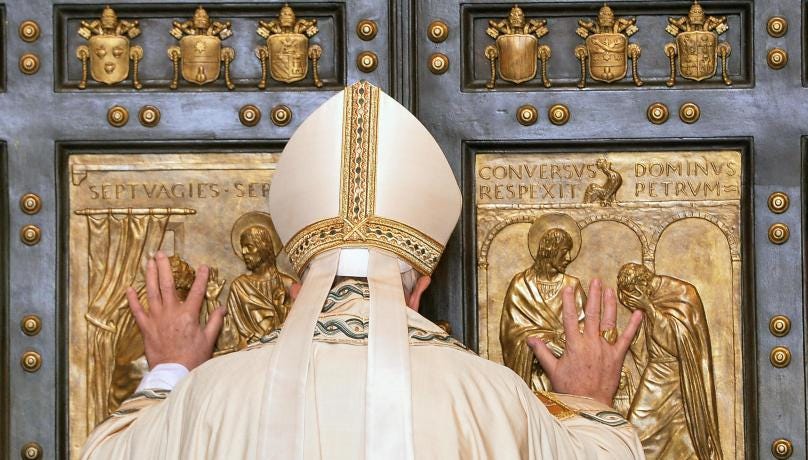The Pope and the Broken Bridge
Why modern claims to papal infallibility fail the “Tradition test"
In the modern world, titles often outlive the principles that once gave them meaning and gravitas. But Tradition remembers and draws hard lines between what is genuinely sacred and what only bears the outer appearance. This distinction becomes especially revealing when applied to the question of spiritual authority— a question that returns each time a new pope is named. Infallibility cannot be a function of office or doctrine. It must emerge from a condition of Being, one so fully aligned with the divine that error is impossible. Without this foundation, sacred authority becomes an empty title, estranged from the higher reality that once gave it force. The notion that a pope can speak infallibly on matters of the sacred while embodying its negation in his words, thoughts, actions, or values does not pass the “Tradition test.”
From a Traditional standpoint, the most important foundation for authority comes from one’s connection to the transcendent, which confers upon the person a superior ontological rank. The modern notion that a man can be ‘infallible’ in certain abstract doctrinal statements while being morally corrupt or politically degenerate is a product of juridical abstraction, not metaphysical reality.
Keep reading with a 7-day free trial
Subscribe to PhilosophiCat’s Newsletter to keep reading this post and get 7 days of free access to the full post archives.



